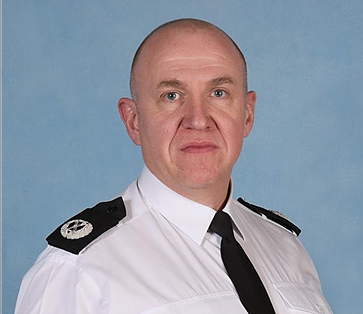SIPR Newsletter Sign Up
You will be added to our mailing list to keep you updated with future events and activities from the Scottish Institute for Policing Research
This funding is linked to the Seldom Heard Communities event held on Wednesday 19th May 2021 (full information available below).
Police Scotland, the Scottish Institute for Policing Research (SIPR) and the Scottish Police Authority (SPA) have joined together to provide significant funding for projects and activities which will meet genuine evidence gaps and support Police Scotland to further contact and engagement with all elements of our communities in Scotland, but particularly those groups which are seldom heard.
The term ‘seldom-heard groups’ refers to under-represented people who may be less likely to engage with Police for a variety reasons (such as race, religion, sexuality, disability, age and communities isolated through geography or deprivation). A focus on understanding seldom heard groups will place more emphasis on Police Scotland and our collaborators to connect with these communities ensuring their voices are heard; their needs are met; and their perspectives are understood.
Police Scotland is keen to explore areas for further research that would help meet genuine evidence gaps, towards enabling policing to further enhance its support to ‘seldom heard’ communities and as such, we invite all interested parties (academics, researchers, practitioners, service users, third sector and support workers) to explore public confidence in Police Scotland for these communities.
If you would like to discuss the suitability of your project idea to ensure it would be appropriate for the remit of the seldom heard communities call, please contact either Monica Boyle (SPR Knowledge Exchange and Business Manager – m.craig2@napier.ac.uk) OR Dr Megan O’Neill (SIPR Associate Director and leader of the Police Community Relations network – m.oneill@dundee.ac.uk).
Dr Jonathan Mendel (University of Dundee) who will lead the project “Inquiring together: Collaborative Research with BAME communities and serving officers”
Dr Andrew Williams (St Andrew’s University) as Principal Investigator for the research project “To be seen and heard: developing photovoice as a method for the police to engage with young people in underserved communities”
Dr Julie Berg (University of Glasgow) who will head up the project “Accounting for Complexities: an Intersectional Approach to Enhancing Police Practitioner Accountability, Legitimacy & Sustainable Reform”
Professor James Moir (Abertay University) who will lead the project “Hearing seldom heard groups: Policing with empathy in conversation with LGBT and young people from disadvantaged backgrounds”
Dr Nicole Vidal (Queen Margaret University) as Principal Investigator for “Refugee and asylum-seeker experiences, trust and confidence with Police Scotland”
Police Scotland, the Scottish Police Authority (SPA), and the Scottish Institute for Policing Research (SIPR) invited academics, researchers, and practitioners with an interest in ‘Seldom Heard’ groups to an information sharing event on Wednesday 19th May 2021.
The term ‘seldom-heard groups’ refers to under-represented people who may be less likely to engage with Police for a variety reasons (such as race, religion, sexuality, disability, age and communities isolated through geography or deprivation). A focus on understanding seldom heard groups will place more emphasis on Police Scotland and our collaborators to connect with these communities ensuring their voices are heard; their needs are met; and their perspectives are understood.
Police Scotland is keen to explore areas for further research that would help meet genuine evidence gaps, towards enabling policing to further enhance its support to ‘seldom heard’ communities and as such, we invite all interested parties (academics, researchers, practitioners, service users, third sector and support workers) to explore public confidence in Police Scotland for these communities.
The aim of the event was to stimulate diverse thinking, ideas and opportunities for research and innovation into how Police Scotland can serve communities in the most appropriate and supportive ways. Police Scotland, the SPA, and SIPR have committed to co-creating a grant (DETAILS ABOVE) which will fund activities seeking to address key issues identified throughout this session.
The event was be chaired by Assistant Chief Constable John Hawkins and co-hosted by Dr Megan O’Neill (SIPR Associate Director and Lead for Police-Community Relations Network). Police Scotland presented its strategic direction, existing research evidence, identified research gaps and commitments to understand and enhance public confidence from seldom heard groups in Scottish policing.

ACC John Hawkins, Police Scotland
Assistant Chief Constable John Hawkins is the executive lead for Local Policing North and Contact, Command and Control (C3) Division.
ACC Hawkins’ portfolio consists of the following business areas:
• North East (A), Tayside (D) and Highlands and Islands (N) divisions
• C3
• Volunteers, including PSYV
• Special Constables
• Armed Forces Reservists
• Public Confidence
He is also the Senior Responsible Officer for the Local Policing Programme, including the Contact Assessment Model and the Contact Strategy. ACC Hawkins, who joined Lothian and Borders Police in 1992, was a Chief Superintendent working as Head of Organisational Development at the start of Police Scotland. He went on to serve as Divisional Commander for Forth Valley before being promoted to ACC in 2016. Initially, he held the portfolio for Service and Protection before he was appointed ACC for Local Policing North in 2017.

Dr Megan O’Neill – SIPR Associate Director and Network Lead for Police-Community Relations
Dr Megan O’Neill was appointed as the SIPR Associate Director for the Police-Community Relations Network in August 2018. Megan is a Reader at the University of Dundee and has an extensive background of policing research with a focus on issues of social interaction in policing, both within the organisation and with the public and partners. Her work has included studies of football policing, Black Police Associations, community policing, partnership working and Police Community Support Officers.

Kirsty-Louise Campbell
Police Scotland
Kirsty-Louise Campbell, Head of Strategy and Innovation at Police Scotland, is an experienced leader, developing successful strategy, insight, innovation and transformation across a number of sectors. Experience includes leading the successful re-design and transformation of a major public sector body and leading award winning strategy and insight services. In Police Scotland, Kirsty-Louise has developed the overarching strategic outcomes for policing along with new strategies for public contact and engagement and cyber along with building capability and capacity in policing for public engagement, insight and innovation.

Davina Fereday
Police Scotland
Experienced Research Manager with over 20 years experience of working in consultancy and government. Skilled in leading qualitative and quantitative research and evaluation at a European, UK and city level. Recently appointed by Police Scotland to lead research and public engagement at the national and divisional level, supporting implementation of the long term police strategy and innovation.This has included extensive research into public experience of contacting the police and approaches to develop this, alongside measuring public confidence and engaging operational officers and staff.

Amanda Coulthard
Scottish Police Authority
Amanda leads the Strategy and Performance function and reports into the Deputy Chief Executive (Strategy & Performance). Amanda joined the Authority in February 2021 from a role in West Dunbartonshire Council as the performance advisor to the Chief Executive and Elected Members, leading a team responsible for: Strategic Planning & Performance; Data Analysis; Policy; Consultation & Engagement; Equalities; Community Planning; Partnerships and Local Scrutiny. As the Head of Strategy & Performance for the SPA Amanda leads the Authority’s approach to developing and reviewing the national policing strategy, maintaining a system of performance assurance and reporting to support best value and maintaining public confidence in policing.
You will be added to our mailing list to keep you updated with future events and activities from the Scottish Institute for Policing Research